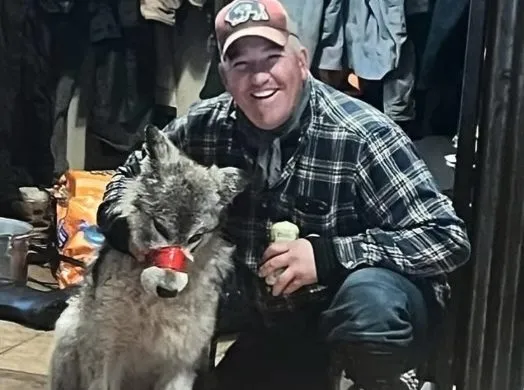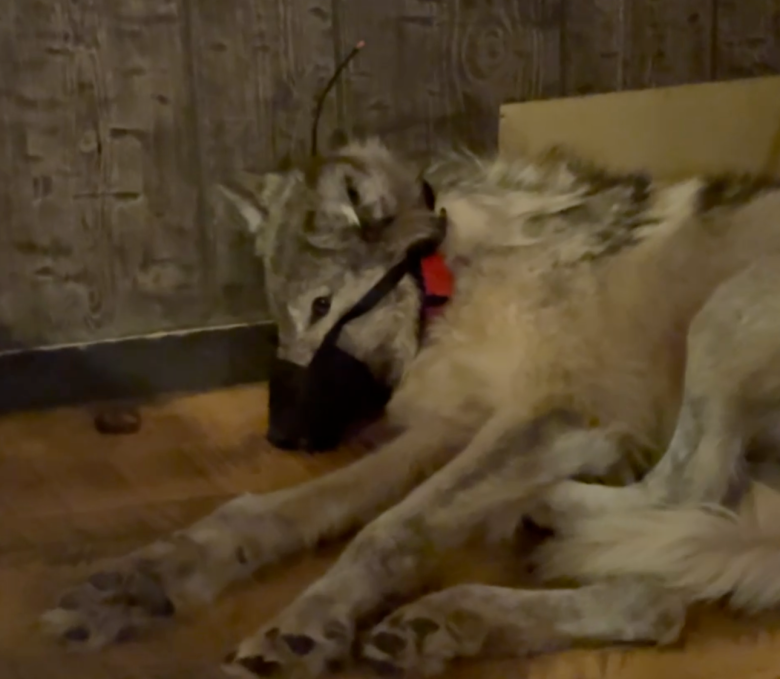Cody Roberts Indicted, But Wolves Are Still at Risk.

Why We Must Reform Wildlife Governance Now: Cody Roberts’ Wolf Torture Case Reveals Systemic Failings
News broke yesterday that Cody Roberts — the Wyoming man who ran down a young wolf with his snowmobile, taped her mouth shut, and paraded her, still alive, into a bar — has been indicted by a state grand jury on felony animal cruelty charges.
If convicted, Roberts faces up to two years in prison and a fine of up to $5,000.
Accountability matters. The cruelty Cody Roberts inflicted on his wolf victim shocked the world, and people demanded justice. But here’s the hard truth: Roberts is just one man. He’s been the face of wolf abuse for over a year, but what he did is still legal in Wyoming — and it happens far more often than most people realize.
In Wyoming and other states, it is perfectly legal to run down wolves and coyotes with snowmobiles. Videos of people glorifying this behavior are just a click away on YouTube. This isn’t one person’s crime. It’s a system designed to make wolves killable by any means necessary.
Punishing one man doesn’t change the system
Every crime committed is also a failure of society to prevent it. Roberts’ actions should never have been possible under state law. Wyoming lawmakers had every chance to act after the world reacted in horror — but they didn’t. In fact, just this spring, the legislature rejected yet another attempt to ban the practice of running over wildlife with snowmobiles.
They saw the outrage. They saw the headlines. And they still refused to act.

That’s because what counts as a “crime” in our legal system is a political choice. Legislators have decided that torturing a dog or a horse is unacceptable, but torturing a wolf or a coyote is business as usual. Those choices reflect power — the ranching and extractive industries that spend heavily to keep wolves and other predators legally excluded from even the most basic protections.
Why the real fight is systemic
Prosecuting Cody Roberts may feel like justice, but it won’t save another wolf. As long as state law explicitly allows “predator whacking,” cruelty will continue.
That’s why we cannot fixate on one man’s punishment at the expense of true systemic change.
-
Changing laws closes loopholes. Stronger protections can prevent abuse before it happens.
-
Legislation protects more than one wolf. It raises the standard of treatment for all wildlife.
-
Policy shifts culture. What lawmakers decide to ban or allow shapes public attitudes about what is acceptable.
Real safety for wolves — and accountability for the human actions that harm them — doesn’t come from individual prosecutions. It comes from collective organizing to force lawmakers to rewrite the rules.
Where do we go from here?
Roberts’ indictment is one step. But the bigger fight is making sure Wyoming — and other states that allow this cruelty — finally change their laws.
The truth is this: every wolf run down by a snowmobile, every predator tortured and left to suffer, is not just the act of one cruel person. It’s the failure of a political system that has chosen not to stop it.
That’s the fight in front of us — and it will take all of us to win.
Join Wildlife for All today. Together, we can end laws that legalize cruelty and demand real protections for wolves and all wildlife.
